 Most viewed - Rakujuen Garden 楽寿園 Most viewed - Rakujuen Garden 楽寿園 |
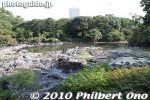
Rakujuen Garden as viewed from the veranda of Rakujukan villa, Mishima, Shizuoka. Photography was not allowed inside the spacious villa.191 views
|
|
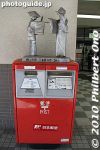
Folk dancer sculpture on mail box at Mishima Station.190 views
|
|
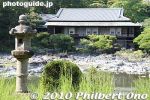
Rakujuen Garden and Rakujukan villa, Mishima, Shizuoka.183 views
|
|
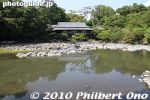
Rakujuen Garden, Mishima, Shizuoka. This is Kohama Pond whose water is supplied by natural springs. However, the pond always lacks water. 小浜池177 views
|
|
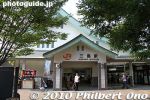
JR Mishima Station on the Tokaido Line. The station building is designed after Mt. Fuji.134 views
|
|
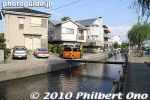
112 views
|
|
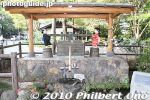
Megumi-no-te water fountain at Shirataki Park101 views
|
|
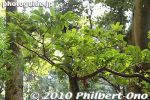
Sakaki tree whose leaves and branches are used in Shinto ceremonies.100 views
|
|
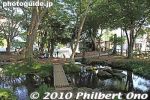
Next to Rakujuen is a small park called Shirataki Park. 白滝公園98 views
|
|
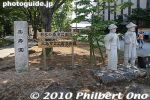
Entrance to Rakujuen Garden, a short walk from Mishima Station's South Exit. Across the street is the Mishima Tourist Info Office where you can pick up pamphlets and ask for directions.77 views
|
|
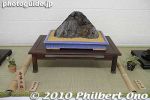
They had a rock garden display when I was there.76 views
|
|
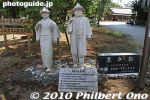
Monument for Noe-bushi traditional folk dance started in Mishima. 農兵節 ノーエ節75 views
|
|
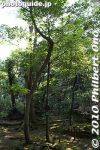
Sakaki tree whose leaves and branches are used in Shinto ceremonies.75 views
|
|

Map of Rakujuen Garden. Mishima Station is at the top. Japanese garden and villa formerly owned by Prince Komatsu Akihito in the late 19th century. The city of Mishima eventually bought the property in 1954 and opened it as a public garden. 楽寿園74 views
|
|
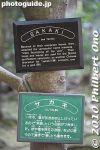
About the Sakaki tree.72 views
|
|
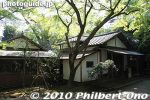
Rakujukan villa72 views
|
|
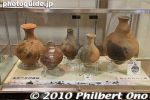
Pottery72 views
|
|

About the Noe-bushi traditional folk dance. It is performed at the Mishima Matsuri festival in summer. 農兵節 ノーエ節71 views
|
|
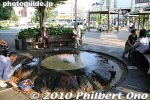
Hot spring foot bath at Mishima Station. Perfect remedy for tired travelers.69 views
|
|
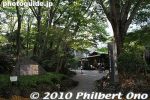
Another entrance to Rakujuen where I exited.68 views
|
|
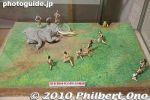
Stone Age model67 views
|
|

About Rakujukan. In 1911, Rakujuen became the villa of Korean Crown Prince Euimin. In 1927, the property was sold to a local financier. The city of Mishima bought it in 1952. 66 views
|
|
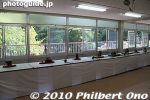
Rest house exhibition space on the 2nd floor.66 views
|
|
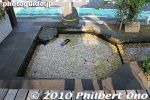
Hot spring foot bath at Mishima Station. 65 views
|
|
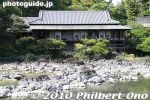
Rakujukan in Rakujuen Garden. The villa was originally built for Prince Komatsu Akihito. The rocks originate from Mt. Fuji lava flows. 楽寿館64 views
|
|
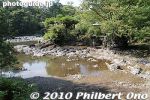
64 views
|
|
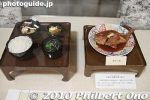
Meal served at Mishima-juku's Honjin lodge for VIPs.64 views
|
|

Hinoki cypress, another coveted tree species in Japan.63 views
|
|
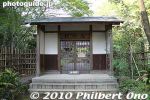
Entrance to another villa, called Ume Goten (closed to the public). 梅御殿63 views
|
|
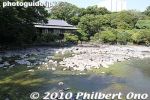
63 views
|
|
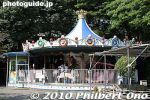
Rakujuen also has a small amusement park.63 views
|
|
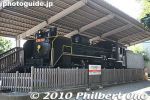
Retired steam locomotive from 1942 on display. 蒸気機関車62 views
|
|
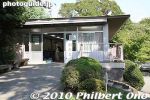
Rest house has an exhibition space on the 2nd floor.62 views
|
|
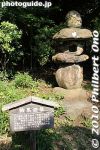
61 views
|
|
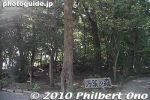
Manyo no Mori forest61 views
|
|
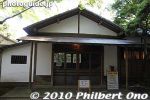
Entrance to Rakujukan villa. 30-min. guided tours are provided at certain times. Just wait in front of the entrance a few minutes before the tour starts. 楽寿館60 views
|
|
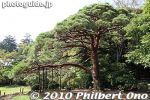
Pine tree いこいの松60 views
|
|
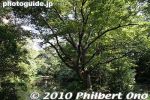
60 views
|
|
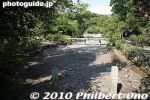
60 views
|
|

Signs in English including a QR code.60 views
|
|

59 views
|
|
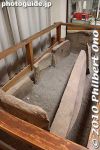
Kofun tumulus coffin59 views
|
|
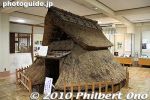
Yayoi Period shack58 views
|
|
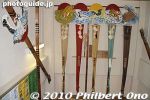
58 views
|
|
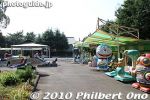
58 views
|
|
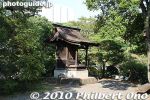
Miyajima57 views
|
|
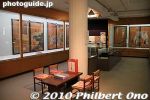
Inside Mishima Folk History Museum.57 views
|
|

Mishima umbrellas57 views
|
|
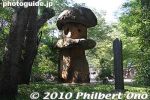
Giant stone lantern.56 views
|
|
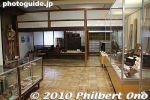
56 views
|
|
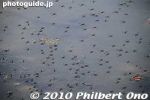
55 views
|
|
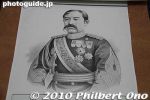
Prince Komatsu Akihito, the original owner of Rakujuen.55 views
|
|
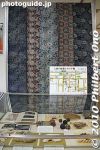
Local Mishima crafts.55 views
|
|
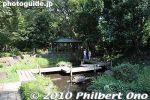
54 views
|
|
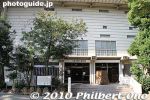
Mishima Folk History Museum is also in Rakujuen Garden. 三島市郷土資料館54 views
|
|
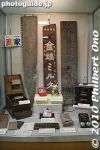
Mishima shop signs54 views
|
|
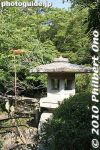
Lots of stone lanterns.53 views
|
|
|
|
|
|
|